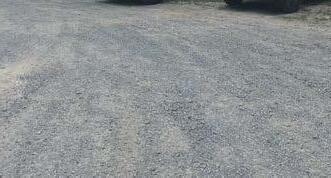




By Mary Anne Gill
The cost to upgrade wastewater treatment plants in Te Awamutu and Leamington have soared to an unbudgeted $57 million.
News the costs for Te Awamutu Wastewater Treatment Plant had gone up from $19 million to $48 million and the Leamington wastewater reticulation upgrade from nothing to $9 million came at a public workshop on Monday.
The projects had been “reshaped” Business Support group manager Ken Morris told councillors and there would clearly be implications for rates.
The curveball for councillors came near the end of the workshop and visibly affected councillors Roger Gordon and Mike Montgomerie beaming in by Zoom for the workshop.
Gordon shook his head at the bombshell announcement while Montgomerie’s furrowed brow was enough to suggest he was shell shocked too.
The workshop started controversially when Gordon put a point of procedure to the meeting saying councillors had been told to restrict contact with staff and respect their weekends.
Yet the agenda for the workshop went to councillors at 5.07pm on

Friday for a Monday 1pm meeting. It went online during the workshop.
Nothing in the papers hinted at the $57 million surprise.
Chair Claire St Pierre seemed to close the workshop at the one hour 36 minute mark before Strategy group manager Kirsty Downey and Ken Morris gave their verbal update about the emerging issue related to the Long Term Plan.
“What’s good for the goose is good for the gander,” Gordon said in seeking to delay discussion earlier arguing it had given him little time to prepare.
Other councillors agreed but wanted the workshop to continue as they were all –bar Gordon, Montgomerie, Andrew Brown and mayor Susan O’Regan – in the chamber anyway.
An unwell O’Regan listened in, chipping in towards the end with a croaky voice.
Three Waters copped the blame for the increases.
Before the government repealed the reforms last year, the costs for the country’s water supplies, storm and wastewater management systems would have been picked up by the new water service entities.
So Waipā had not reviewed the Te Awamutu and Leamington wastewater



projects since 2018, Service Delivery group manager Dawn Inglis told the workshop.
While inflation had been applied, a more forensic drill down had not happened until recently.
“It’s not an easy call to front up,” said O’Sullivan but it was important to do it honestly. Staff came to councillors “early and
upfront,” she said.
The workshop’s intention was to give councillors the opportunity to provide feedback on a draft financial strategy which increases debt, sets higher rates to pay debt down faster, reduces interest costs, makes the Long Term Plan a nine year one rather than nine oneyear plans and provide rates predictability.




















fun run on Saturday. The fun run sent participants around a field, over hay bales, through a tunnel, across a slime pit and down a slip ‘n’ slide as they were drenched with water and splattered with vibrantly coloured powder, cheered on by parents, teachers and community members. The carnival was hosted by the school’s PTA to raise funds for new playground swings. Christie said the sheer enthusiasm and community spirit on display made it a day to remember.
I am starting this week with a snapshot of some of the jobs with which I have been involved.
Last Wednesday, we received a call from a concerned member of the public who was following a vehicle heading to Cambridge from Te Kawa. The vehicle was weaving back and forward across the road and centre line - and at times appeared to brake randomly. It also pulled in front of a truck, risking a crash. I located the vehicle as it was coming into Cambridge. The elderly driver was stopped and spoken to with the result that she was forbidden to drive until gaining medical clearance.
On Thursday evening I joined Neighbourhood Support for a rural community meet up in Maungakawa.
Approximately 60 local residents joined us, along with Cambridge Community Patrol, Fire and Emergency NZ, Civil Defence, Farmgate and Rural Support. It was great to give some crime prevention advice, information about the different services and generally encourage connection within Maungakawa village.
On Saturday, Rural Support Officer


Constable Corley and I conducted foot patrols at the Great Kwi Summer Festival. It was good to see so many of you out and enjoying the displays and activities on offer. This was a good family environment for all with no incidents reported.
Twice in the past week, Cambridge staff have responded to a youth who was








breaching court bail and threatening others with a knife. Luckily no one was injured during these events. The young person was arrested both times and has appeared in the Youth Court facing additional charges.
On Monday, we received a few calls from the public about a family harm incident between a male and female near Commerce Street, Cambridge. They were located when a member of the public further pointed them out near Victoria Bridge. It turned out they had also come to the attention of Hamilton Police just the day before. The male was arrested and faced court for breaching of a Police Safety Order (PSO). The female was warned for breach of bail.
A final note on car interference and theft. While we are making good progress in identifying and holding offenders to account, their car crime is continuing. Cars are mostly being stolen in the early hours and driven around before being dumped –often locally. At times the thieves are driving in ways that are extremely dangerous not only to themselves but to other members of the public. While roads can be quiet in the wee hours of the morning, there are always shift workers and other commercial drivers out and about.
If you are one of these night owls and see youths driving vehicles dangerously, especially if they are travelling in tandem, call 111 immediately.
I suggest Jack Sharman (Letters, November 7) read the community board October 2024 agenda item on fluoridation. The most recent scientific research is laid out in detail. The latest science is the NTP fluoride neurotoxicity report published in August, the Cochrane Collaboration report published in October, and the US Federal Court Ruling September 2024 which ruled fluoride “poses an unreasonable risk of reduced IQ in children”. It is obvious that fluoridation is unsafe and ineffective. Not one country in continental Europe fluoridates their water supply for good reason. The Ministry of Health have been wrong about plenty of issues over the years. Fluoridation is yet another one of these sad cases. Cambridge is facing mandatory medication and it needs to be stopped.
Kane Titchener, Deputy Chair, Te Awamutu and Kihikihi Community Board
I strongly support Jack Sharman (letters, November 7) and his comments, but suggest the entire [fluoride] topic needs a much wider review with more than one set of views. What I object to is that the Te Awamutu [and Kihikihi] Community Board, in my opinion had, and continues to have, no right to involve itself in activities beyond its defined geographic boundaries - especially as they chose to take action with no reference to the local Cambridge Community Board. As a voter in Leamington I strongly object to people, who I had no opportunity to vote for, advocating on matters on my behalf without me having an opportunity to comment. Council management and councillors should tell them to worry more about what is going on in their patch and let us worry about ours.
Murray Reid
Leamington





Nearly 100 roads around the district, including 50 rural roads, will be repaired and resurfaced between now and March by Waipā’s maintenance contractor, Downer. Transportation manager Bryan Hudson said fewer road cones would be used, a move aimed at minimising driver frustration and saving money.
The Sharing Shed, hit late last month by vandals on Te Awamutu’s Anzac Green has been repaired and is back in action.
Two Waipā recreational reserves are getting a $30,000 boost between them thanks to the WEL Energy Trust.
Leamington Domain and Tūrāta Reserve in Kihikihi will each see projects completed - in Tūrata’s case new signs - under the trust’s capital beneficiaries project funding.
Te Awamutu Intermediate School pupil Harriet Pendleton has won the Te Awamutu Lions Peace Poster Competition and schoolmate Amani Liddicot was named runner up. The pair were two of 12 Te Awamutu youth to enter their work into the competition with the theme of Peace Without Limits. Harriet's entry will be entered into the national competition whose winner will progress to an international final. Te Awamutu Lion and project organiser Ken Huberts said while there were thousands of entries worldwide anything was possible.
A car versus pole incident at 9.30am in Pakura St, Te Awamutu on Tuesday resulted in power outages on neighbouring streets. Power had still not been restored when The News went to press but was expected by 5.30pm.
By Mary Anne Gill
Two years ago, Sandra Sesto-Dekic took on the job of boosting the numbers of Waikato people catching public transport.
But when Government subsidies for age-based public transport fares ended on June 30 and fares increased by 20 per cent, her job became much tougher.
Four months in, the stats tell a heartening story, particularly in Waipā where the introduction of more services and electric buses have seen records tumble.
In August, 14,622 passengers caught the Te Awamutu-Kihikihi service and if you add in the 424 who hopped on the Te Kūiti Connector, that’s more than 15,000 punters, or an average


of 485 people a day. Across the district in Cambridge, August was also a record with 13,371 people catching the number 20 service and 177 flagging down the Tokoroa Connector on its speedier way into Hamilton. That is an average of 437 passengers a day.
And just in time for SestoDekic’s second anniversary in February as Team Leader Customer Focus at Waikato Regional Council’s regional transport connections department, expect to see double-decker buses on the busier routes to bolster
numbers.
The February figures when Waipā-based SestoDekic started in 2023 were 7630 passengers on the Cambridge 20 service – an average of 273 a day – and Te Awamutu 24 had 8243 –average 294.
Other regional services are also building patronage – up 27 per cent from Waitomo and 54 per cent from Ōtorohanga.
Even the beleaguered Te Huia train service – funded through to June 30, 2026 – is seeing an increase with the addition of Pukekohe as a stop and half price fares


for children. Scrapping free Gold Card fares at peak times seems to have made little difference to the service’s popularity.
Public transport was always going to struggle post Covid as the close contact put many punters off.
Bringing out the excuses was also popular – not enough services, it was too expensive, bus stops offered little in the way of comfort and cover and for those who travelled all the way to the Transport Centre in Hamilton – the destination was dirty and unsafe.
“The 40 per cent increase for Waipā is exceptional and it’s looking great. We are doing another push to promote the service now that we know the double deckers are coming,” said SestoDekic who points to higher frequency and smoother rides for the uplift.
The drivers are happier too – they now have depots in Kihikihi and Leamington – a partnership between the regional council and Waipāto pick up their electric buses and relax in comfort for the next trip to start rather than wait on the side of the road.
It is a sensible time to consider public transport during the celebrations
season.
“Sometimes you know you might be having a few drinks, and it might be a better idea to grab the bus than take a car,” she said.
The regional council will partner with Waipā council for the Olympic champions parade in Cambridge on December 13.
People from Hamilton, Kihikihi, Te Awamutu and Leamington will be able to catch a free bus into Cambridge for the parade.
There will also be extra communication targeting those who are unaware of cross-town services – from Leamington to Cambridge and return, and from Kihikihi/ Ōhaupō to Te Awamutu. Buses provide a viable opportunity when parking is at a premium in the towns’ central business districts.
So how pleased is SestoDekic? Very, because of the big changes she and the transport team had to deal with both on the network itself and with tariffs.
“We’ve carried those and I think we’ve done really well in communicating them and educating our passengers now with a very clear customer experience. We are setting ourselves in the right way for the future.”
We believe that each funeral service should be as unique as the life you are celebrating. When a funeral is personalised, it creates a special space for sharing precious memories, telling stories, and simply being together with friends and family.
Rosetown Funeral Home are dedicated to providing personalised and meaningful funeral services, and are happy to discuss new ideas, pre-planning and/or pre-paying for your funeral. We are here for you in your time of
so please get in touch anytime to discuss your options.



By Mary Anne Gill
Chamber chief executive Don Good told The News the address showed Bayly was all over his portfolios.






Local authorities and small business owners who invoice government agencies can expect quicker payment from January, Port Waikato MP Andrew Bayly let slip at a luncheon fixture four days before the official announcement last week.
“This is a minister who is getting sensible stuff done to make it easier to do good business.”


In a speech to Waikato Chamber of Commerce members in Newstead, Bayly covered off activities in his portfolios and revealed he wanted to see the government pay its own invoices within five days.
He also wanted compulsory business surveys streamlined by getting rid of redundant questions and using existing data more effectively.












The invoice revelation came after Bayly spoke about the need for economic growth through stimulating innovation, opening up connections and improving New Zealand’s business environment.
“Internally we’ve got a whole focus around getting the right parameters in place to support businesses,” he said.

Andrew Bayly
It would be rolled out into other government agencies and local government by January 2026.
Bayly was first elected to Parliament as the National member for Hunua in 2014.


























The electorate has since changed to Port Waikato. He is the minister for Commerce and Consumer Affairs, Small Business and Manufacturing and Statistics.

His background in business and farming endeared him to the crowd which included business owners, lawyers, accountants, bankers, manufacturers, consultants, engineering and construction companies.
The Waipā businesses in the room perked up when they heard about manufacturing sector initiatives and plans to align New Zealand’s regulations with Australia to facilitate easier exporting and reduce bureaucratic burdens.
Changes to the Companies Act and financial sector reforms were also planned, said Bayly.
The invoicing initiative means the 33 central government agencies who send and receive 1.6 million invoices annually will move to an e-invoicing system from January. It would require them to pay within five business days.
“Government agencies are a large client for businesses up and down the country, supplying everything from stationery and furniture, through to services such as software, security and research.
“Prompt payment is especially important for small businesses which have limited cash reserves – an unpaid or late invoice can be the difference between being able to pay staff on time or not.
Estimates suggest that adopting e-invoicing could generate productivity savings of $4.4 billion over the next 10 years and reduce instances of human error and fraud.

By Chris Gardner
The Don’t Burn Waipā lobby group has asked the dairy industry to speak out against plans for a waste-toenergy plant in Te Awamutu.
Don’t Burn Waipā spokesperson Eoin Fitzpatrick has written to dairy co-operative Fonterra chief executive Miles Hurrell, Livestock Improvement Corporation (LIC) chief executive David Chin, DairyNZ chief executive Campbell Parker and Federated Farmers Chief Executive Terry Copeland asking them to join the fight against the building of the plant.
Hamilton-based Global Contracting Solutions’ application to build and operate a waste-to-energy plant called Paewira in Racecourse Road was called in to the Environment Protection Agency by Minister for the Environment Penny Simmonds at the request of Waikato Regional Council in August, meaning the decision will be made by a board of inquiry.
“I am sure you are aware that a new round of submissions has been announced,” Fitzpatrick wrote in an email to the rural leaders. “I would
like to encourage your organisations to lodge submissions and share with your employees, customers, suppliers, and shareholders as if this goes ahead it will be detrimental for all of us.
“I feel we have been let down by local, regional and national governments - who despite continued pleas have allowed this process to continue - causing economic and social damage in our community.”
Fitzpatrick told The News he was concerned with the dioxins the waste-to-energy plant would produce and suggested its proposed location on land zoned for dairy industrial use was ludicrous, being close to residential properties, Te Awamutu College, Te Wananga Aotearoa, The Barnyard pre-school, Fonterra, and Manuka Health.
“I am genuinely concerned about the lack of opposition to this from the people we pay to look after our best interests,” he said.
“What kind of government focuses on road cones when we have foreign companies trying to push their dirty and poisonous industries into our environment when we are in the midst of a climate crisis and talking about


trying to leave the world in a better place for future generations?”
The company has painted a completely different picture, saying the plant would create 60 jobs and “unlock opportunities to educate future generations about waste minimisation, clean up the nearby Mangapiko Stream, and celebrate the people of Ngāti Apakura and their connection to the land”.
Hamilton based Craig Tuhoro said his company processes up to 100,000 tonnes of scrap metal a year, but the 18,000 tonnes of waste floc it send to landfill was too much, so he looked for a solution and found one used successfully in Europe.
Fonterra is opposing the application, and The News understands DairyNZ is joining the opposition.
Don’t Burn Waipa Secretary Nick Cantlon asked Te Awamutu-Kihikihi Community Board to nominate a person with community knowledge to serve on the board of inquiry. The board is drafting a notice of motion opposing the application.
Submissions close December 18 with the Environmental Protection Authority.







By Mary Anne Gill
Almost all the submissions received oppose a planned sand quarry on the southern outskirts of Cambridge - but there are two surprises.
Cambridge Chamber of Commerce is not one of them, but New Zealand Transport Agency (NZTA) is.
The chamber, which represents 400 businesses, says it does not oppose the RS Sand Ltd application to establish and operate a sand quarry in Newcombe Rd but wants the resulting truck traffic kept out of Cambridge township.
It is appealing for on-off ramps to allow trucks to go straight on or off Waikato Expressway into and out of Newcombe Rd.
NZTA – which has resisted calls for additional on and off ramps south of Cambridge - says the application should
be denied because the impacts on the state highway and its infrastructure have not been sufficiently addressed.
Waipā District Council District Plan and Growth manager Wendy Robinson said of the 347 submissions made when they closed last week with the district and Waikato regional councils eight supported the quarry proposal, five were neutral and the rest were against.
Five of the submissions were from organisations – Fish and Game, Waikato Sustainability Society, NZ Forest and Bird, Cambridge Chamber of Commerce and NZTA. A sixth came from Waikato Sustainability Society, a group formed by neighbour Rhys Powell, a mining expert. The submissions are being collated – 44 submitters have asked to be heard – and a hearing panel appointed for a hearing early next year.





By Janine Krippner
There were some great questions at the Karioi talk in the Te Awamutu Library last week after a fantastic presentation by Dr Oliver McLeod. Thank you for all who came and said hello, I always love to meet those of you who enjoy this column.
There were mentions of ‘subduction zones’, so this week we will explore what that is and why it is important for volcanoes in particular. We also happen to live above one – the Hikurangi Subduction zone, and I think it’s pretty neat understanding what’s below our feet.
Subduction zones are where two tectonic plates, the massive slabs of crust that make up the Earth’s surface, are moving together and one is pushed down below the other – it is subducted. Below the Waipā, the top of the subducting Pacific plate is very roughly 250km deep. This crust is made up of many, many layers of rocks, and those rocks are made up of many different minerals or crystals.
We have volcanoes because we have magma, a mix of molten rock with solid crystals or minerals, that moves from deep below to the surface. These huge systems are complex and evolving through time.
This is one of those times where geology requires us to think of the very large – the subducting slab, alongside the very small – the chemical makeup of the minerals within the rock.
A very important way of making magma is adding water to hot rock, lowering the temperature that is required for that rock to melt. One term for this is ‘fluid-fluxed melting’. The rock is already hot and under pressure, but it is solid. This added water is a key for making it melt. So where does that water come from? It comes from even deeper below.
Trapped within the minerals that make


up the subducting slab is water, but not in the liquid form we would fill a glass with. The enormous temperatures and pressures experienced by the subducting plate causes the release of this water, which moves upwards into the hot rock above it. There are chemical processes going on through all of this, which change across different pressures and temperatures. This continues as the blebs of magma form and begin to move upwards because the now-melted rock is less dense than the solid rock – like pouring oil (lower density) into water (higher density).
Over time these magma blebs become larger magma reservoirs, mixtures of the melt plus solid chunks. Once there is enough fluid rock within the mixture, we are heading in the right direction for a possible eruption.
This is why we have a high proportion of volcanoes alongside subduction zones, and an important reason why we have volcanoes in Aotearoa. There is, of course, more complexity to our story. There are other ways of generating magma and different locations where we get volcanoes, but subduction zones are the most popular place for volcanoes to form. The outer edge of the Pacific tectonic plate has a lot of subduction zones, which is why we have the “ring of fire” with the highest concentration of active volcanoes on Earth.
The next time you see an eruption in the news, large or small, you might like to consider the long journey that the magma took to get there. The journey that began long before we were born and will continue to shape our landscapes well into the future.


By Julie Guest, St John’s Anglican Church
Just after midnight on Guy Fawkes night someone drove into the George St entrance of St John’s Anglican church and deliberately set fire to one of the Plunket nurse’s cars. He didn’t even stay to watch the fire - leaving once it was fully in flames.
The result of these actions affects many people. Firstly, there was the call to the Fire Brigade who were already very busy that night. Fortunately, this is a concrete church, so there was nothing but a scorch mark on the building, but the church still smells foul from burnt rubber and plastic. The person most affected is the car owner who now has to manage without the car until the insurance process has resolved to allow purchase of a replacement.
The question everyone asks is “Why? What could the offender be hoping to gain?” Because he appears to have left just as the fire began to blaze, we can deduce that he was not motivated by the appeal of fire or flames. One can only imagine that this was someone needing to prove themselves to someone(s).
For the local businesses, for us at St John’s church and especially for the person whose car has been so mindlessly yet wilfully destroyed, it is tempting to heap blame, to categorise the perpetrator with any number of derogatory qualities, and to want to seek vengeance.
Tempting indeed! But does it serve us well? Firstly, the desire for vengeance expends energy, adding stress in an already stressful situation. Secondly, wanting revenge requires us to “other” the offender-


that is, to see him only in only in the light of the criminal actions, not as a person with needs and feelings.
I am not saying offenders should not face consequences for their actions, because they certainly should. But I am reminded that I belong to a community and come from a family that has taught me what love looks like and feels like. I do not need to prove myself to be accepted. All through my growing up years, when my character was being shaped, I heard and experienced God’s love for me though the actions of family and my church community. I have been given that priceless gift, so I will not judge or blame people who have not experienced the same.
Does this sound smug? It would be if the love and community that I experienced wasn’t waiting for anyone who wants it. Any of the churches in Te Awamutu will offer you the Christian community that I experienced. They will also point you to the forgiveness of Jesus, and help you to understand how forgiveness received for your wrongs, equips you to offer it to others.
So instead of holding the person who set this car on fire in contempt, I urge you to imagine how ghastly it must be to have to earn approval in such a way-and pray for him and those he is trying to impress. And if this is too tough for you on your own, head to a church near you and ask them to pray with you and for you.









By Roy Pilott
A come-and-go lake near Raglan has been declared the oldest in New Zealand.
Lake Disappear – Mokaikaraka – is in a valley near Bridal Veil Falls dammed by lava flow 2.33 million years ago. It can be two kilometres long and 15 metres deep at one time of the year – and the drain to present as just a small stream
And nearby, timber which is older than Karioi itself and with bark attached is regularly found on the maunga.
The nuggets of information came out in an engaging presentation at Te Awamutu Library last week.
Oliver McLeod, from the Waikato Regional Council, was joined by Janine Krippner, who writes On Shaky Ground for the Cambridge News and Te Awamutu News, to discuss the geology of Karioi volcano – the title of his new book – and the field extending from it including Pirongia, Kakepuku and Te Kawa.
The pair are rock stars of a different type. McLeod explained that studying rocks enabled geologist to trace the history. Karioi as Ankaramite, Olivine basalt, Plagioclase-basalt, Andesite and Peridotite.
Ankaramite is McLeod’s favourite.
“My life’s mission is to share Ankaramite. My mum says it looks like concrete, but think it’s just beautiful, full of crystals and
growth rings.”
McLeod’s four-year work, which was helped by sponsorship and crowd funding - follows the geological mapping of Karioi to show how it evolved – eruption by eruption - and changed in shape over millions of years. It follows a similar work on the younger Mt Pirongia.
His map of Karioi shows in different colours flows from each of a series of eruptions and the book’s illustrations include rock profiles where he identified layers which predate the maunga.
Another nugget was that Whale Bay – Te Marae o Mōkī - at Raglan is a lagoon – an unusual feature on the west coast - formed by a significant landslide.
Mt Taranaki today looks like Karioi and Pirongia would have 2.5 million years ago. Pirongia is the youngest of the four maunga – Te Kawa and Kakepuku are dated back 2.3 to 2.7 million years – but more work is required to determine the accuracy of that estimate.
Karioi had also gone through collapses similar to the Mount St Helens, south of Seattle, eruption in the US in 1980. Mt St Helens, not unlike Taranaki in profile, literally blew its top.
The work carried out by McLeod has also underlined similarities between what the Waipā maunga were like millions of year ago and what Auckland had with Rangitoto and its own field of volcanoes.



Krippner, who did the introduction by explaining she liked her volcanoes hot, said understanding those that were not enabled volcanologists to better understand active fields and how they might change. At any one time 40 to 60 volcanoes would be erupting around the world, and 90 per cent are in the Pacific’s ring of fire –which includes New Zealand.


Thursday’s gathering attracted about 30 people – including one The News reader who arrived with a selection of Krippner’s weekly columns in a folder.







The old Bank of New Zealand at Te Awamutu was sold by auction for £200, Mr Wheeler, a local builder, being the purchaser. The contractor for the new bank was to commence work immediately. In the meantime the bank officials secured temporary offices in Beckett’s Buildings. It was wryly observed that this was the first day the bank had shown any signs of activity since its establishment some 33 years before.
Pirongia had also been getting a move on - the old creamery building was pulled down and a new up to date one built. The Alexandra Hotel was undergoing repairs and additional rooms, kitchen and outbuildings were being erected. A neat cottage had also been built for Miss Miller.
A cold snap caused a good
deal of sickness at Pirongia, mumps being especially prevalent, even among adults, and the doctors were said to be having a “good time of it.”
Paterangi School’s annual picnic was held at Mr Ryburn’s homestead. Although the attendance was not a record one, there was a good number present, including friends from neighbouring districts. After lunch, Mr Webb, school committee chairman, presented the children with their books, and the afternoon was spent very pleasantly with games of tennis and rounders. Races were also held. The last and most amusing race of the day was the chase after the lolly man which the children enjoyed best of all. After 6 o’clock tea hearty cheers were given for Mr and Mrs Ryburn for their kindness.



In the evening an enjoyable dance was held in the hall. It was feared the sanitary arrangements at Ōhaupō would not stand close inspection by the Health Officer. A large amount of sickness had occurred in the district which should have acted as an incentive to the residents to endeavour
to secure a doctor. They could combine, as was done in other districts, to form a medical club. Such an arrangement made it possible for an individual to get medical attention at a moderate cost, so that when a run of sickness attacked a family the medical expenses would not be the heavy
burden they now were.
Kihikihi was suddenly captivated by the speedy and luxurious mode of travel presented by the motor car. Four residents became possessed of cars, all four vehicles being for the convenience and pleasure of private families. Evidence of the benefits of

In the heady aftermath of the US election, one could be forgiven for being a bit bored with the whole everlasting muddle thrown at us by the media. Especially American media with its overlay of false news. They were totally wrong in forecasting the result of the key vote would take several days to emerge. It was all over without a whimper overnight.
Recriminations will abound, most from within the Democrat camp. The elderly lady congresswoman from California – Nancy Pelosi - who refuses to ‘go quietly’. still clings on to her (own) perception that she is the powerhouse of the party and has the status of (very) wise old person. Yet this same VWOP is the one and the same that commandeered an American government plane and transported herself and her not-needed views onto the shores of Taiwan. If ever there is a hot simmering potato in the vegetable patch that is the China Sea, then it is the highly successful nation that emerged in 1949. And a piece of rock that China has a high desire to own.
Earlier this year we cruised the China Sea from end to end starting at Shanghai. And had to make an unplanned call off the coast of Taiwan

to transfer a sick passenger to a Taiwanese coastguard vessel. All pretty simple really except on looking only a mile away we observed, sitting quietly on the water, a Chinese destroyer. Which brought home that the two nations – the bloodline of both going back to the original Chinese mainland - are, one day, to become a hotspot that will make the Ukraine conflict look like a kindergarten.
For all his blustering rhetoric and often misplaced observations the new President-elect of the US is here to stay. He is not going to cause the Ukraine conflict to cease ‘in 24 hours’ nor is he going to successfully bulldoze what may be up to 11 million illegal immigrants across the border back into Mexico. Witness the Latino vote this time swung behind Trump - the power of which he will be well aware.
His blustering on trade tariffs is only good until he realises (or is persuaded by the saner members of his cabinet) that the wider US public will wake up and understand that tariffs work two ways – the greater effect being an increase on retail costs and a rapidly rising inflation.
Trump alone did not cause the swing that bounced him and his MAGA movement back into the White House.
By Peter Carr
the motor car as a means of transit was shown when the Chamber of Commerce delegates in Mr Lawson’s car made the return journey from Puketarata to Te Awamutu (16 miles) in 45 minutes. The road for many miles ran through hilly country with many heavy grades having to be traversed. With a horsedrawn vehicle the journey would have occupied at least two hours, and the deputation couldn’t thank Mr Lawson enough for getting them home in such good time.
The US experienced a notable shift to the right that has emerged in most western states except for the UK.

But the Prime Minister there is finding it very hard to make a worthwhile footing and one should not be surprised to see yet another election on those politically battered and bewildered islands soon.
Previous PM John Key was criticised for stating that Trump as President would be good for the US, world trade and New Zealand. Sometimes standing back from the fray leads to wise counsel and sensible words.
What was interesting on Sunday was to hear a well-respected American political observer heaping praise on Winston Peters for his handling of diplomatic matters and focused selling of the New Zealand cause. But back here on LaLa Land we will have to be ready to be bombarded from our TV screens with pro and anti Māori blathering while the Act party attempts to undertake the impossible – with not a single other party in the House to support them.
Well at least we beat the Irish!
By Chris Gardner
Waipā District Council is ignoring Te AwamutuKihikihi Community Board’s request to push back against the Director General of Health’s directive to introduce fluoride to Cambridge water.
Board deputy chair Kane Titchener asked the council to seek an interim order, or some other appropriate legal remedy, to put fluoridation on hold until the end of a new court case involving Health New Zealand at the board’s October meeting. His motion was approved three votes to one.
“Contravening the directive is an offence under the Health Act 1956,” said council service delivery group manager Dawn Inglis in a statement.
Titchener’s motion also asked the council to liaise and work with one or more of the 13 other directed councils to push back against the directive
and acknowledge to the community that the US Federal Court had ruled that adding fluoride to the water supply at 0.7 to 1ppm is an unreasonable risk relating to neurotoxicity.
“The Ministry of Health makes all decisions around fluoride,” Inglis said.
“Waipā District Council was directed by the Ministry to add fluoride to the Cambridge water supply in July 2022, and was advised it would receive funding to help pay for the work required. We are continuing to work with the Ministry of Health with respect to the funding agreement, in line with this directive.”
Inglis could not say when fluoride would be introduced.
“There is no funding agreement in place, and as the work required to comply with the fluoridation directive would take around nine months, any change is still some way off,” she said.
“Waipā District Council
is reviewing the future delivery of its drinking water, wastewater, and storm water (three waters) in line with the Government’s Local Water Done Well legislation. This may involve a potential collaboration with other Waikato councils. Any further action on the fluoride directive will be considered within this wider overview of our water services.”
Titchener told The News he was disappointed with the council’s response as his motion was to seek an interim order, or some other appropriate legal remedy and work with other councils who are pushing back against the order.
“I disagree with what they have said,” he said.
He was expecting an invitation to speak at the council’s Service Delivery committee meeting on November 19.
“If I don’t get that, it will be quite a big deal,” he said.

By Viv Posselt
A seniors’ forum in Cambridge has signalled the re-boot of Waipā District Council’s 2016 Age Friendly Policy in favour of a more effective alternative.
Those at the November 7 meeting agreed to recommend to council that the policy be retained but that Waipā’s seniors should work with council to review its clauses.
A name change was also suggested for what they termed a ‘Cambridge centric seniors forum’. It was determined that they meet three or four times a year, with another annual meeting bringing in the forum’s Te Awamutu counterpart to discuss issues of common interest.
The meeting was chaired by Waipā district councillor Roger Gordon and facilitated by Te Awamutu Grey Power president Michael Cullen. Waipā deputy mayor Liz Stolwyk also attended.
Last week’s meeting came out of discussions involving Roger Gordon and fellow district councillor Lou Brown – also at the meeting - who were asked to consult and seek feedback on developing more
effective communication between council and seniors.
Te Awamutu held its meeting on September 5, but circumstances meant the Cambridge meeting was delayed until last week.
Michael Cullen said: “We as seniors make up about 30 per cent of the population in Waipā and we have a considerable amount of expertise. I don’t want this to be a bitch session … that achieves nothing. This is about finding solutions.”
He described the 2016 policy as ‘incredibly innovative’ but said seniors of today had greater capability and capacity than ever before… today’s 70-year-olds were performing physically, mentally and attitudinally the way 50-year-olds did in the past.
He said there appeared to be no active movement by council to harness and draw on the experience of seniors.
Age Concern Waikato chair Meredith Osmond said the proposed forum needs to address matters such as civil defence preparedness as well as topics such as potholes and parking.



By Viv Posselt
Sombre services were held earlier this week in Pukeatua and Te Awamutu to mark Armistice Day – the day in 1918 that ended World War 1. The area’s commemorations started with a service on Sunday morning at the Pukeatua War Memorial Church.
The tiny place of worship is one of just two special churches in New Zealand, built in 1955 by the Pukeatua farming community as a memorial to local men who died in the two world wars. The second such church was built in 1954 in Tutira, north of Napier. Both churches have historic covenants over them.
Because of its military links, Pukeatua War Memorial Church has had a long-standing relationship with the Patriots Defence Force Motorcycle Club, and several of their Hauraki Chapter members attended Sunday’s service.
At the service, RSA padre Rev Murray Olson said it was important to mark Armistice Day ‘because it reminds us not to forget why we have the freedoms we have today’.
“It was freedom that was not bought cheaply,” he said.
“Not only did the soldiers suffer, but so did the whole nation, particularly their relatives. Those who came back were never the same again because of fighting in the atrocious conditions they were serving in.”
A commemorative service at Anzac Green in

Te Awamutu was wellsupported and was followed by a veterans’ lunch at the RSA.
The Dedication was read out by Brigadier Jon Broadley of the Cambridge RSA on behalf of Waipā Mayor, Susan O’Regan.
Broadley said the New Zealand Expeditionary Force had received their ‘baptism of fire at Gallipoli in 1915 and went on to drench the soil of France and the Western Front with the blood of young New Zealanders for the next three years.
“The total number of New Zealand troops and nurses
that served overseas during the First World War was 103,000 from a population of just over a million people. Forty-two percent of all men of military age served in the New Zealand Expeditionary Force. Of these 16,697 were killed and 41,317 were wounded. That represents a 58 per cent casualty rate.”
“We remember their sacrifice, and those of all New Zealand war dead today.”
Musical Allsorts led the
of the















It was billed as the biggest celebration of summer and the 15,761 people – not counting exhibitors and participants - who attended over two days at the weekend were happy to endorse that.
Organisers have plenty to mull over from the inaugural Great Kiwi Summer event at Lake Karāpiro, said Mighty River Domain chief executive Liz Stolwyk who was already looking 12 months ahead with three hours still to go.
The Light and Sound Show on Saturday night was the highlight although waiting for it to get dark made for a long day for families of young children who had been there since the gates opened at 11am.
Having Armistice in Cambridge there made for a poignant weekend as various war battles were re-enacted with surprising accuracy.
But there was plenty to keep everyone interested, water bottle stations, sunscreen, food outlets and in usual Karāpiro Domain fashion, clean toilets!
Senior writer Mary Anne Gill was at Lake Karāpiro to capture some of the action.



















By Chris Gardner
Trade tariffs of up to 20 per cent on all imported goods could follow the re-election of Donald Trump to the presidency of the United States.
In a report going to Federated Farmers Waikato Executive this week, Economic and Finance chair Garry Reymer warns of the far-reaching implications Trump’s re-election could have on New Zealand’s primary sector. Agricultural, horticultural and viticultural producers will all be impacted Reymer, the owner of
two dairy farms at Cambridge and Kaipaki, warns.
“Our wine and meat exports to the US are significant and if they get hit with tariffs that Trump is proposing it will really be felt here at home,” he warned.
Trump’s protectionist policies could impact the whole order of international trade, including New Zealand’s key trading partners across the Asia Pacific region.
“If we overlay that with the growing power of the BRICs (Brazil Russia India China) grouping which is picking up
new members all the time like South Africa, Iran and some other mid-east countries, the world is truly moving in a very different direction that we saw through the 70s 80s and 90s,” Reymer said.
“Our government, especially trade and foreign affairs, is going to have to fight hard to keep our ag exports in front of the world at good prices ensuring good returns to our farmer producers,” said.
Reymer said producers could add trade tariffs to a list of big issues threatening their business such as the behaviour of banks

and the drive to decrease carbon emissions.
“The banking inquiry has a few key issues for me, one being the pricing of risk both by the trading banks themselves but also by the Reserve Bank. Two different risk assessments but both add cost to what we pay. The Reserve Bank being the biggest culprit here. Another question needs to be asked and that is why our banks are getting involved with scope three emissions? They sell money, they do not trade with other countries and do not produce goods. What is the rational of them demanding
that we reduce our emission to remain bankable?”
“The world order is changing, free trade has peaked, and we are rapidly moving to an isolationist’s world where the rules of trade are being rewritten or just ripped up, but New Zealand can work and prosper in that world because we produce quality food at a competitive price. Energy security, border security and food security will be the drivers for the foreseeable future.”
Federated Farmers Waikato Executive members will discuss Reymer’s report on Tuesday.


By Chris Gardner
Bring back local discussion groups.
That’s the message dairy farmers have for DairyNZ’s new chief executive Campbell Parker and chair Tracy Brown.
The industry good organisation took local discussion groups online during the pandemic and scrapped them all together afterwards.
Dairy farmers are invited to larger regional eventsone is the Pokeno field day on November 13 on Jamie Lyons’ farm.
Federated Farmers Waikato
Provincial Dairy Chair
Matthew Zonderop said he had got used to a 15-minute drive to discussion groups,
but regional events were more than an hour away.
“I would like to go back to the old school local discussion groups,” he said.
“I don’t want to drive up to Pokeno where I will stand out like a sore thumb.”
Ōhaupō dairy farmer Andrew Reymer echoed Zonderop’s sentiments.
“The only real farmer connection that DairyNZ had was the discussion group,” he said.
Sharefarming Consultants founder Louise Gibson said her clients also wished for the local discussion groups to return.
DairyNZ chief executive Campbell Parker said in a statement the organisation had delivered 27 events with an average of 30 attendees
after calving and 72 per cent said they liked the new format focussing on putting scientists and experts in front of farmers.
A retrospective resource consent has been granted to Kiwifruit Investments Ltd to construct crop protection structures and vegetated shelterbelts at 1278 Kaipaki Rd.
Public notification was unnecessary, Waipā District Council ruled, because no person is adversely affected. Neighbours Grant and Margaret Walker disagree saying the shelterbelt is right on their boundary while posts are five metres from it. “We have been led to believe all through the process we would be kept informed and when the application would be lodged,” said Grant. The consent was granted to Parmvir Singh Bains who struck opposition last year when he was granted retrospective resource consent for a kiwifruit orchard in Parallel Rd.


By Clyde Graf, Waipā-King Country Councillor
My neighbour Michael was telling me about his rental properties and how the tenants are paying them off.
The discussion raised some questions.
The Bright Line Test – is it a legitimate investment policy - or a discriminative, taxavoidance vehicle? Here’s their situation, with permission.
Diana is a high school teacher, and a single mum in her late 20s. She rents a house that belongs to Michael, one of several houses that Michael owns on our street.
Jack and Jane are a hard-working, middleaged couple living across the road from me. They have three teenage children.
Jane is a nurse, and Jack drives a truck.
Jack’s also a volunteer fireman. They’re saving to purchase a rental property. Michael retired at the age of 50.
He owns six houses, plays golf three times a week, and spends three months a year overseas holidaying. Life’s pretty good for Michael.
After paying the mortgage and bills, there’s never much money left for Jack and Jane to invest, so any excess goes into their savings account.
They’ve now accumulated $25,000, well off the deposit required to purchase a rental property. Each year they’re required to pay income tax on the interest generated on their savings. The extra income also accrues to their overall annual income, meaning an increase in ACC levies.
Diana saves all she can spare, trying to accumulate enough money for a house deposit.
As a single mum, renting is a slog. Diana tried to buy a house two years ago, using her $100,000 in savings as a deposit. She


was told by the bank to go away and save some more. Because Diana didn’t have enough money to invest in houses she bought gold, while trying to accumulate a larger deposit. The price of gold has risen by 55 per cent over the last two years.
Any profit generated by Diana’s home deposit investment is liable for income tax. If she was wealthy, she would have been able to invest in property and avoid paying any tax at all.
Over the last five years, Michael has sold two of his houses, for a profit of $700,000. He says it’s not worth investing in businesses because of the risk, and the share market means tax on profits.
He’s not required to pay any tax on the handsome profits generated from speculating on houses he says, because The Bright Line Test means he can avoid tax, legally, if he waits at least two years before selling.
People without the money required to purchase investment property are taxed on all the earnings they generate, including interest. Perhaps it’s time to introduce a policy that allows people without investment properties to retain their investment and savings earnings, tax-free, just to even the playing field.
The Bright Line Test and the absence of a Capital Gains Tax on investment property benefits only the wealthy and effectively legalises tax avoidance. It’s time to address this unethical policy conundrum. This is my view, not necessarily that of council.














By Chris Gardner
New Zealand Landcare Trust chief executive Nick Edgar has been elected chair of Global Landcare.
Global Landcare is a notfor-profit organisation established in 2020 to support global efforts to mitigate the impacts of climate change, enhance biodiversity and improve food security.
Landcare is an international
movement to encourage communities to collaborate and adopt environmentally sustainable land and water management practices. It is founded on an ethos of grass roots, local, communityled approaches to solving difficult environmental management issues.
“It’s super exciting to be elected by my colleagues to lead this organisation,” said Dr Edgar who moved to Mystery Creek near Te
Awamutu from Hamilton eight years ago.
“The landcare approach is working in over 30 countries, from Africa to Asia, from the Caribbean to the Pacific, from Iceland to Bhutan, and from Europe to the Americas. It is a truly global effort.”
The NZ Landcare Trust, headquartered in Hamilton, has worked for 30 years with iwi, farmers, and local communities on a wide

range of environmental projects nationally. Projects include working with farmers to improve water quality in the Waipā peat lakes, building new wetlands, and supporting predatorfree initiatives at Mystery Creek and Te Awamutu.
More recently the trust has managed the Taiea to Taiao project, building a wildlife corridor to connect the Maungatautari and Pirongia maunga.
“The plan is to plant trees and reduce pests, creating stepping stones along the corridor to allow for the safe dispersal of native birds from the mountain sanctuary at Maungatautari to the Mt Pirongia volcano and beyond,” Edgar said.
This includes fencing off farmland and planting hundreds of thousands of trees in the last couple of years working in partnership with iwi, local landowners, and agency staff from Waipā District Council, Waikato Regional Council, and the Waikato River Authority.
“My vision is to take the kinds of innovative approaches, knowledge and skills that we have developed in New Zealand and apply them in other countries,” Edgar said. “We have an
A recent change in legislation now means that people in family violence situations, who have obtained a final protection order against their spouse or civil union partner, now have the option to dissolve their marriage or civil union without having to wait two years a er separation.
What is the law change?
Nicknamed “Ashley’s law”, the Family Proceedings (Dissolution for Family Violence) Amendment Bill allows a party with a final protection order the option to apply for a court order dissolving a marriage or civil union under the Family Proceedings Act 1980.
How is this di erent? Historically, the law required
spouses to physically be living apart and emotionally separated from the relationship for two years before making an application to the family court to dissolve their marriage (i.e. get a divorce). There were no exceptions to this, regardless of whether there was family violence present or an abusive relationship.
What does this mean for survivors of family violence? This is good news and a welcome relief for individuals who want to dissolve their marriage and find themselves in family violence situations. If you have a final protection order in place because of physical, emotional or psychological abuse, then you may be eligible.
Gallie Miles Relationship Property
exciting opportunity to take some of the best examples of Kiwi ingenuity and intellectual property related to sustainable agricultural practices and environmental conservation and export it to the rest of the world.”
Landcare is not a heavy handed top-down approach being fostered on developing countries.
“That approach does not work with communities in New Zealand, and it will not work anywhere else,” Edgar said.
“We must be respectful of local communities in other countries, let them design local solutions, based on their local and indigenous knowledge. We are simply there to support them with training, new technologies, and funding.
“Planting trees also helps to protect local streams from eroding sediment and nutrient enrichment, with their precious taonga of native aquatic plants, invertebrates, and fish. It is a genuine partnership approach that can function as a model for what can be achieved when local people take ownership of environmental management.”
Global Landare will
expert Rachel Cooper says “it will empower people to leave an abusive relationship knowing that they don’t have to remain married a er being granted a final protection order. This gives people a sense of autonomy and the chance to make their own decisions about their future moving forward.”
Could this apply to you?
If you’d like to know if you are eligible to file a dissolution of marriage application under the new law, or you need advice on the steps



emphasise knowledge exchange and provide training in other countries.
Oceania will be a hot spot for Global Landcare efforts over the next couple of years.
“We are developing partnerships between Australia, New Zealand, Fiji, Samoa, and Rarotonga. The aim is to support local landowners and communities in the Pacific to address climate resilience, flooding, and water resource protection, and to assist with the conservation of engendered terrestrial and marine species. The work is already underway, and we hope to scale it up in partnership with our Pacific cousins,” Edgar said.
you may need to take, Relationship Property expert Rachel Cooper is here to help.
It is important that you seek specialist relationship property advice regarding your specific situation before filing court documents, as there are always other factors to consider when parties separate and relationship property needs to be divided.
rachel@gallie.co.nz
kirsty@gallie.co.nz 07 872 0560











(7)
Insane (colloq) (5,3,4)
Come undone (7)
Bliss (7)
Cooking instructions (6)
Bowl (5)































































By Mary Anne Gill
and Cambridge.







A dismal voter return and a worsening database has newly elected Waipā Networks Trust members so worried they have called for an investigation into how to improve things for the next election in three years.
When polling closed on October 1, the voter return was 14.80 per cent – 4312 votes. A total of 1532 voting papers were returned as “gone, no forwarding address.”
The cost to run the election was $88,149.48 – or about $20 per vote.
Waipā District Council had 230 of those votes which mayor Susan O’Regan and chief executive Steph O’Sullivan used on behalf of ratepayers.
The News raised the database issue with Waipā Networks Ltd after discovering some individual voting papers were sent to the wrong addresses.
A total of 40,000 customers in Waipā, Waikato and Kāwhia were eligible to vote for six members of the trust.
The coverage area runs from Tamahere in the north, to Pukeatua and Kiokio in the south across towards the Kāwhia coast and includes the main settlements of Pirongia, Ōhaupō, Te Awamutu, Kihikihi, Kāwhia
New trustees elected were Jarrod Godfrey and Philip Coles who joined incumbents Sarah Matthews, Marcus Gower, Dave McLean and Ray Milner on the trust last month,
The trust owns 7.2 million shares worth more than $194 million in Waipā Networks.
Trust manager Kayla Heeringa said address information was sourced from electricity retailers who hold the customer data and provide the compiled database to its election provider Electionnz.com
“Unfortunately, we have minimal control over the data provided from the retailer and also what information customers provide to their retailers.
“Widespread use of email and direct debit payments has meant the database has worsened over time, which is why the trust implemented the additional control of sending emailson top of the required postal voting method outlined in our Trust Deed,” said Heeringa.
When trustees debriefed after the election, they asked about the database challenges.
Voter returns have been consistently poor – 16.11 per cent in 2018 and 15.86 per cent in 2021.











CARAVAN 180 XL 6.5 metres, C.I. Munro, all aluminium frame, cert, self-contained with fully enclosed awning, double glazed, tinted windows, sleeps 5, microwave, Thetford cassette toilet, 3-way automatic fridge/ freezer (90ltrs), 5 good steel belted radials (8 ply), 90ltrs fresh water, 102ltrs grey, gas cooker & grill, 2 gas bottles, 230 volt & 12 volt lighting, fire extinguisher, excellent storage, galvanised chassis, no rust, only one devoted owner, beautiful condition.
$40,000 or near offer
Cambridge telephone 07 823 3576


Location: Cambridge, NZ
Salary: From $75,000 (based on experience)
Hours: Full-time, 8:00 am – 5:00 pm Cogswell Surveys, a trusted name in land development since 1965, is looking for an Administration Manager to support our friendly, local team.
What You’ll Do:
• Financial Administration: Manage payroll, invoicing, budgets, and reconciliations (Xero and Excel).
• Project Coordination: Help keep projects and workflows on track.
• Communication: Provide updates and manage team requests.
• Tech-Savvy: Comfortable with Microsoft 365 suite and open to learning new software. Skills Required:
• Financial Expertise: Experience with payroll, invoicing, and reconciliations, ideally using Xero and Excel.
• Strong Organisational Skills: Ability to coordinate multiple projects and meet deadlines in a fastpaced work environment.
• E ective Communicator: Confident in managing updates, triaging requests, and collaborating with various stakeholders.
• Adaptability: Willingness to learn new tools and can identify and improve processes.
• Team-Oriented Attitude: A positive, can-do approach that supports a collaborative team environment.
• People Person: Adept at connecting with colleagues and clients alike, ensuring a positive experience for everyone.
Why Join Us?
• Work Locally: Skip the long commute.
• Work-Life Balance: Full-time hours with weekends o .
• Meaningful Work: Support projects that benefit our Clients the Waipā community.
Learn more at www.cogswell.co.nz
Applications Close: 5:00 pm, Friday, 22nd of November 2024.
Apply today by emailing your CV to reception@cogswell.co.nz. All applications will be treated in the strictest confidence. Candidates must be legally entitled to work in NZ and pass credit and criminal record checks.
GRAZING AVAILABLE
DAIRY HEIFER
GRAZING AVAILABLE
Ph Leanne 027 487 7854
VEHICLES WANTED
WANTED to purchase Benz 2005/06/08/09 280 – CLS350. Details to private buyer: planpacengineer@yahoo.com

We are looking for an experienced and passionate CARPENTER to join the team at WWM Construction. This is a role for a person who has:
• A Carpentry Qualification (or about to Qualify)
• Experience on Commercial Builds
• Good Quality Workmanship
• High Energy and a Good Attitude Involvements include:
• Day-to-Day carpentry tasks on site
• Understand construction methodologies
• Follow good Health & Safety protocol
Benefits include:
• Attractive New Rates per hour
• Work within a positive and supportive team culture
• Stable Hours (plenty of work available)
• Ongoing Training and Development Opportunities
We specialise in Design and Build Projects. We have undertaken a large range of commercial, industrial, residential and multi-tenant developments. We understand design and we pride ourselves on our customer service. Our goal is to add value at all stages of the project, from budgeting, unique design, cost effective engineering solutions, timely construction, and comprehensive project management.
Email your CV to: annette.venter@wcml.co.nz Applicants for this position should have NZ residency or a valid NZ work visa.
FIRST NATIONAL
Saturday 16 November
414 Elizabeth Ave
$869,000 12:30-1:00pm
107 Meddings Cresent PBN 1:30-2:00pm

Contact listing agent prior-visiting as Open Homes times can change.



A conversation about Death to help you live more fully 11am next Tuesday 19 November 2024
Parish of St John’s Lounge 162 Arawata St Te Awamutu ALL WELCOME
No cost, but koha welcome






























































